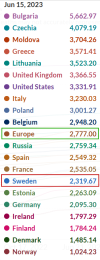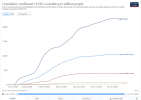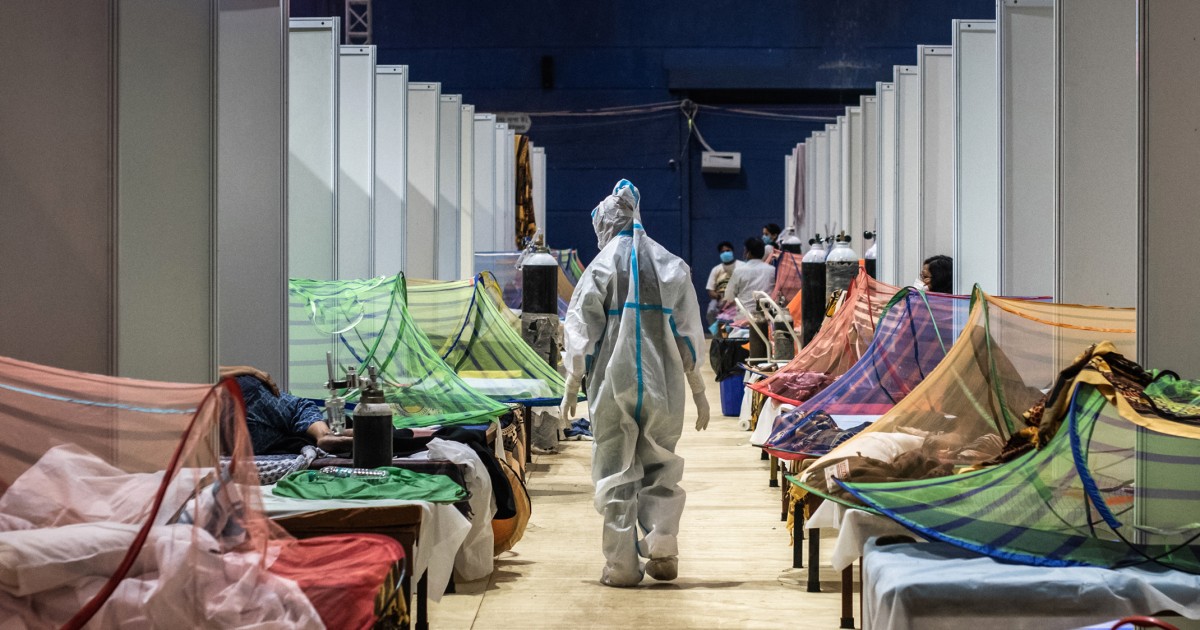Unfortunately, Shifty, whenever I'm debating these things with you, I often feel you're coming across as somewhat glib.
Let me try and pin you down here. Given what we know about the Nordic countries as previously discussed (i.e. similar demographics, ethnicities, economies, cultures etc), what do you think explains the much higher death rates in Sweden during the pandemic? A few posts back, you followed up tuna's post (which denied the Swedes refused care to the elderly, despite wco81's post linking to a report which indicated these things had taken place), to point out that the Swedish death rate was better than the European 'average', but didn't say anything about why you thought this might be the case. Here's a link to wco81's post, incidentally:
4,913
I think you'd surely have to agree that the available evidence points to the fact that the higher deathrate in Sweden (in comparison to their Nordic neighbours) was due to their policy and it doesn't appear that many benefits were gained? Better for personal freedoms, I suppose, but the promised economic benefits don't seem to have appeared.
The reason that this is of interest is that the highly-promoted narrative that Sweden found a better way doesn't appear to be factual, other than within extremely limited bounds. The steadfast denial by the Swedish authorities is even leading to such bizarre situations as is reported in this thread:
A highly-experienced Professor of Virology is being prosecuted for carrying out unauthorised research, after giving away a few hundred unused antibody tests he had developed. The results fed back to him showed the number of people with antibodies was way below what the Swedish authorities were claiming would be the case, he spoke out and now he is facing prosecution. You'd think that, ethics review aside, the information that antibody levels were much lower than believed would have been useful information, but apparently not. And now we get prosecutions with no support from his employers.
We need to get to a point where we can consider which mitigations helped, whether they were required, whether the cost of them was worthwhile and so forth. I don't think there is an honest debate about this. Do you think this Swedish professor is being treated honestly and without prejudice?




